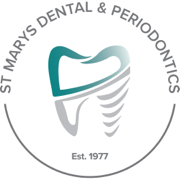Dentures are removable protheses with artificial teeth and flanges that are used to replace missing teeth, receded gums and resorbed bone (soft and hard tissues).
Why do you need dentures?
Dentures can help to improve your:
- Chewing ability – with new dentures, you will finally be able to eat the foods you love! Dentures will allow you to chew more thoroughly, leading to improved digestion and nutrition. Comfortable, well-fitted dentures may also encourage you to eat a more varied and well-balanced diet, which will benefit your overall health.
- Aesthetics – restoring your smile and facial support to your lips, cheeks and jaw muscles is vital to your appearance. Investing in well-constructed quality dentures can go a long way to restoring your facial structure and confidence.
- Speech – dentures are customised to allow the five most important components of your mouth – your tongue, teeth, lips, cheek and the roof of your mouth to work together harmoniously, resulting in improved enunciation and the ability to speak more clearly.
What type of dentures are available?
1. Partial denture
A partial denture is a prosthesis that replaces one or a few missing teeth in the dental arch. Partial dentures are secured by clasps attached to adjacent natural teeth.
2. Complete denture
A complete denture or full denture is a prosthesis that replaces the entire dental arch of missing teeth.
3. Immediate denture
An immediate denture is a prosthesis that replaces to-be-removed teeth at the same appointment. The advantage is that you avoid a period without teeth.
4. Overdenture
An overdenture is a prosthesis that fits:
- over the top of remaining teeth
- over tooth roots that have had root canal treatment, or
- by attachment to dental implants
The remaining teeth or dental implants serve as anchors for added retention and support, preventing shifting or sliding of the prosthesis during function.
Are dentures for me?
The support, retention and stability of dentures are dependent on the:
- amount of residual bone crest and soft tissue coverage
- presence of teeth serving as abutments
- quality and quantity of your saliva
- individuals’ ability to adapt
If these clinical factors are favourable, most patients will adapt well to well-constructed dentures for the daily functions of eating, speech and cosmetic needs. However, if these clinical parameters are unfavourable, it may be impossible to attain a satisfactory result regardless of clinical and technical expertise.
For those patients who cannot tolerate their dentures or wish to consider a more retentive and stable alternative, our implant-supported or -retained solutions (full-arch fixed implant prosthesis or removable implant overdentures) may be an option.
Contact us today

